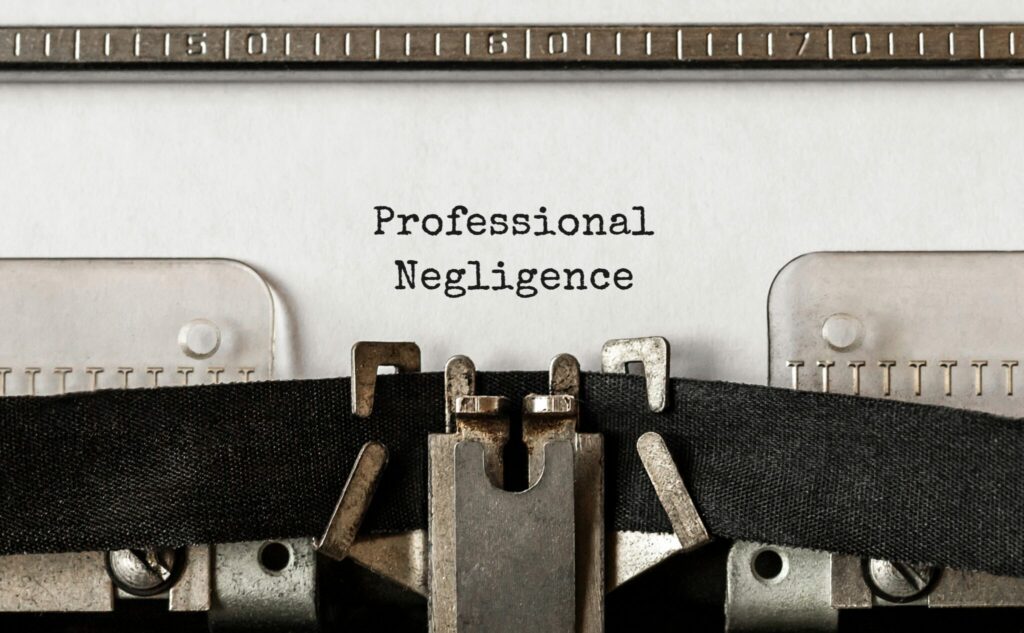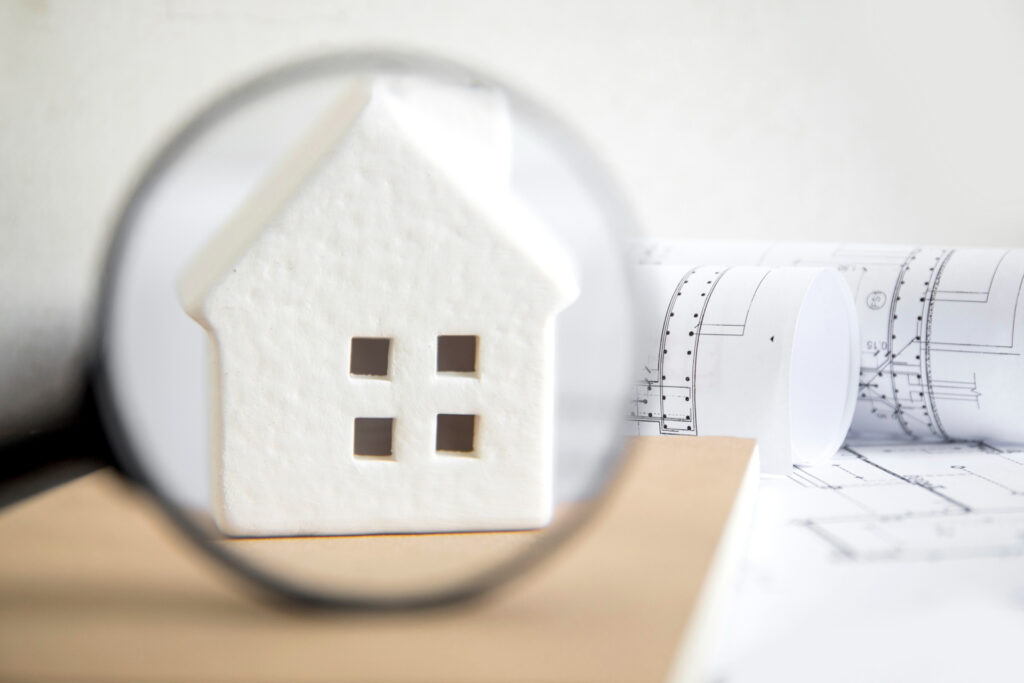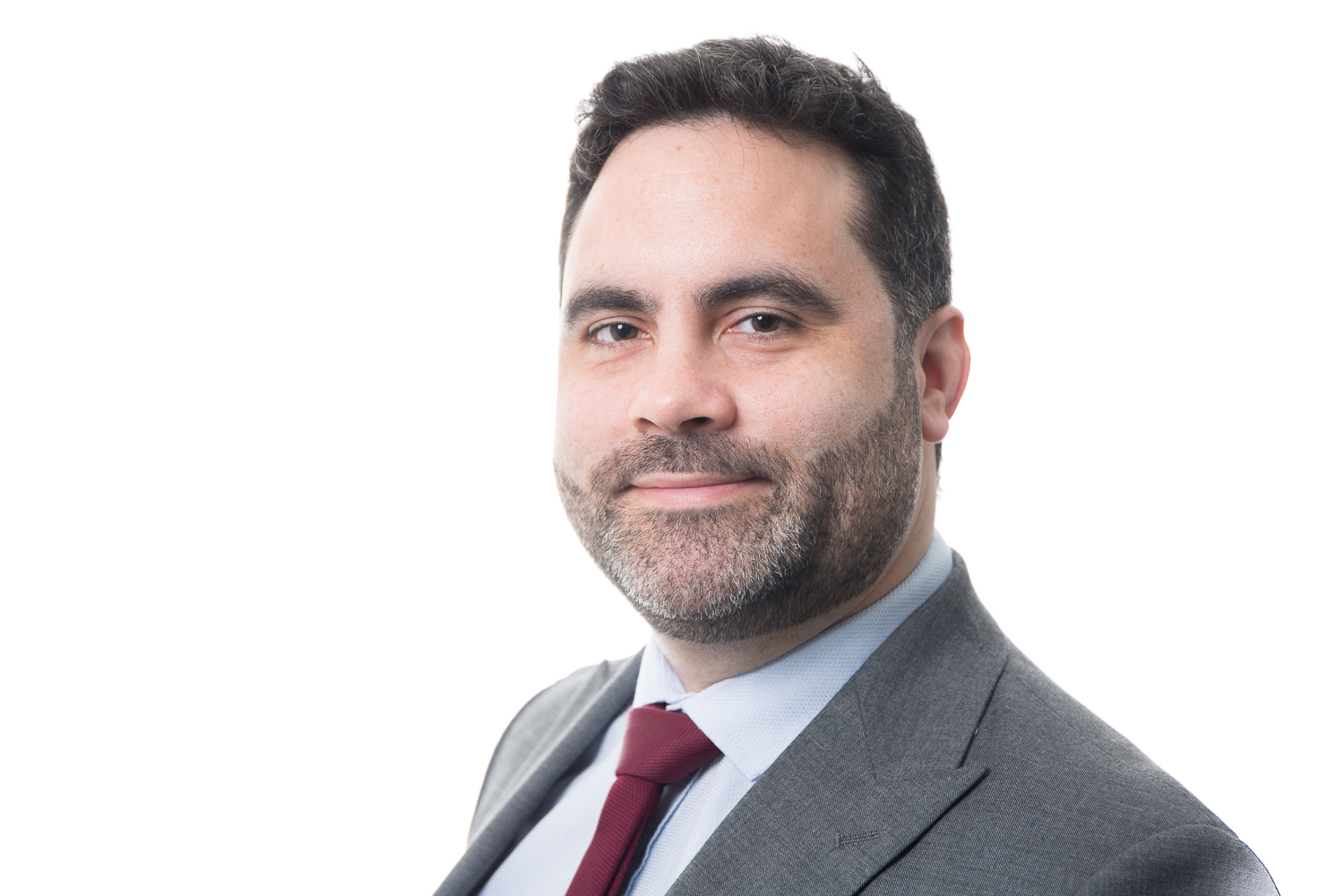Professional Negligence Claims
Our Professional Negligence Solicitors are highly experienced, offering thoughtful solutions to avoid disputes or mitigate risk.
Professional Negligence Solicitors
You are entitled to expect a certain standard of care from the professionals who advise you. Whether that is a solicitor, accountant, financial adviser, architect or surveyor. Where the professional fails to perform to the standards required of them and you have suffered a financial loss, you may have a claim against them for professional negligence.
Claims against Solicitors
As an individual or business, there are many circumstances where it may be appropriate to pursue a claim against your solicitor.
If you employ a solicitor, it’s only right that you expect them to provide you with a professional service and offer you advice that is in your best interests.
However, sometimes the service provided by your solicitor might fall below the professional standard you should receive, which could result in you suffering a financial loss. This could mean you have a professional negligence claim.
Examples of claims against a Solicitor:
- Advice on Property
- Advice on Probate / Wills
- Advice on Litigation Advice on Family / Divorce
It may be appropriate to make a formal complaint prior to considering a Professional Negligence claim. Solicitors are required to have a procedure for handling complaints and should set out their service standards, proposed charges and complaints procedure at the outset.
If after having made a complaint you are still dissatisfied with the response, you can then take your case to the Legal Ombudsman. The Legal Ombudsman can deal with aspects of poor service, such as delayed or unclear communication or problems with fees.
Claims against Accountants
As an individual or business, there are many circumstances where it may be appropriate to pursue a claim against your accountant. Accountants offer a wide range of products and services from book-keeping and the preparation of accounts to advising, reporting and providing regulatory services.
If you employ an accountant, it’s only right that you expect them to provide you with a professional service and offer you advice that is in your best interests.
However, sometimes the service provided by your accountant might fall below the professional standard you should receive, which could result in you suffering a financial loss. This could mean you have a professional negligence claim.
There are various regulatory bodies which provide complaints procedures to dissatisfied clients. Both the Association of Certified Chartered Accountants (ACCA) and the Institute of Chartered Accountants (ICAEW) can discipline members for cases of professional misconduct.
The complaints process is separate from making a professional negligence claim. You don’t need a decision from these regulatory bodies to make a claim.
All accountants who are members of ACCA or ICAEW are required to have professional indemnity insurance. This means that when you make a professional negligence claim, their insurance company will pay compensation.
Claims against Surveyors
As an individual or business, there are many circumstances where it may be appropriate to pursue a claim against your surveyor.
If you employ a surveyor, it’s only right that you expect them to provide you with a professional service and offer you advice that is in your best interests. All surveyors are regulated by the Royal Institution of Chartered Surveyors (RICS), which requires strict minimum standards of professional conduct and client care.
However, sometimes the service provided by your surveyor might fall below the professional standard you should receive, which could result in you suffering a financial loss. This could mean you have a professional negligence claim.
The Royal Institution of Chartered Surveyors (RICS) provides a complaints procedure to dissatisfied clients and can discipline members for cases of professional misconduct.
The complaints process is separate from making a professional negligence claim. You don’t need a decision from the regulatory body to make a claim.
Claims against Barristers
As an individual or business, there are many circumstances where it may be appropriate to pursue a claim against your barrister. Barristers are among the most highly trained professionals and their knowledge of the law is extensive.
If you or your solicitor employ a barrister, it’s only right that you expect them to provide you with a professional service that is in your best interests.
However, sometimes the service provided by your barrister might fall below the professional standard you should receive, which could result in you suffering a financial loss. This could mean you have a professional negligence claim.
It may be appropriate to make a formal complaint prior to considering a Professional Negligence claim. Barristers are required to have a procedure for handling complaints and should set out their service standards, proposed charges and complaints procedure at the outset.
If after having made a complaint you are still dissatisfied with the response, you can then take your case to the Legal Ombudsman. The Legal Ombudsman can deal with aspects of poor service, such as delayed or unclear communication or problems with fees.
Claims against Financial Advisors
As an individual or business, there are many circumstances where it may be appropriate to pursue a claim against your financial adviser. Financial advisors offer a wide range of products and services such as advising on investments like stocks and shares, unit trusts, open-ended investment companies, investment trusts and personal pension schemes.
If you employ a financial advisor, it’s only right that you expect them to provide you with a professional service and offer you advice that is in your best interests.
A financial advisor owes you a duty of care to each of the clients in contract and under common law but also a statutory duty under the Financial Services and Markets Act 2000 to perform their work with reasonable care and skill.
However, sometimes the service provided by your financial advisor might fall below the professional standard you should receive, which could result in you suffering a financial loss. This could mean you have a professional negligence claim.
If you have a complaint about the service of the financial advisor, you may be able to complain to the Financial Ombudsman Service (FOS). The Financial Conduct Authority (FCA) also deals with complaints about financial advisors, but any compensation awarded may be limited.
Claims against Architects
As an individual or business, there are many circumstances where it may be appropriate to pursue a claim against your architect. Architects offer a wide range of products and services from designing and drafting plans for a new property installation, obtaining planning permission, preparing tender documentation to appoint a contractor and the supervision and certification of those works.
If you employ an architect, it’s only right that you expect them to provide you with a professional service and offer you advice that is in your best interests. All architects are regulated by the Architects Registration Board (ARB), which requires strict minimum standards of professional conduct and client care.
However, sometimes the service provided by your architect might fall below the professional standard you should receive, which could result in you suffering a financial loss. This could mean you have a professional negligence claim.
The Royal Institute of British Architects (RIBA) provides a complaints procedure to dissatisfied clients and can discipline members for cases of professional misconduct.
The complaints process is separate from making a professional negligence claim. You don’t need a decision from the regulatory body to make a claim.
Claims against Solicitors
As an individual or business, there are many circumstances where it may be appropriate to pursue a claim against your solicitor.
If you employ a solicitor, it’s only right that you expect them to provide you with a professional service and offer you advice that is in your best interests.
However, sometimes the service provided by your solicitor might fall below the professional standard you should receive, which could result in you suffering a financial loss. This could mean you have a professional negligence claim.
Examples of claims against a Solicitor:
- Advice on Property
- Advice on Probate / Wills
- Advice on Litigation Advice on Family / Divorce
It may be appropriate to make a formal complaint prior to considering a Professional Negligence claim. Solicitors are required to have a procedure for handling complaints and should set out their service standards, proposed charges and complaints procedure at the outset.
If after having made a complaint you are still dissatisfied with the response, you can then take your case to the Legal Ombudsman. The Legal Ombudsman can deal with aspects of poor service, such as delayed or unclear communication or problems with fees.
Claims against Accountants
As an individual or business, there are many circumstances where it may be appropriate to pursue a claim against your accountant. Accountants offer a wide range of products and services from book-keeping and the preparation of accounts to advising, reporting and providing regulatory services.
If you employ an accountant, it’s only right that you expect them to provide you with a professional service and offer you advice that is in your best interests.
However, sometimes the service provided by your accountant might fall below the professional standard you should receive, which could result in you suffering a financial loss. This could mean you have a professional negligence claim.
There are various regulatory bodies which provide complaints procedures to dissatisfied clients. Both the Association of Certified Chartered Accountants (ACCA) and the Institute of Chartered Accountants (ICAEW) can discipline members for cases of professional misconduct.
The complaints process is separate from making a professional negligence claim. You don’t need a decision from these regulatory bodies to make a claim.
All accountants who are members of ACCA or ICAEW are required to have professional indemnity insurance. This means that when you make a professional negligence claim, their insurance company will pay compensation.
Claims against Surveyors
As an individual or business, there are many circumstances where it may be appropriate to pursue a claim against your surveyor.
If you employ a surveyor, it’s only right that you expect them to provide you with a professional service and offer you advice that is in your best interests. All surveyors are regulated by the Royal Institution of Chartered Surveyors (RICS), which requires strict minimum standards of professional conduct and client care.
However, sometimes the service provided by your surveyor might fall below the professional standard you should receive, which could result in you suffering a financial loss. This could mean you have a professional negligence claim.
The Royal Institution of Chartered Surveyors (RICS) provides a complaints procedure to dissatisfied clients and can discipline members for cases of professional misconduct.
The complaints process is separate from making a professional negligence claim. You don’t need a decision from the regulatory body to make a claim.
Claims against Barristers
As an individual or business, there are many circumstances where it may be appropriate to pursue a claim against your barrister. Barristers are among the most highly trained professionals and their knowledge of the law is extensive.
If you or your solicitor employ a barrister, it’s only right that you expect them to provide you with a professional service that is in your best interests.
However, sometimes the service provided by your barrister might fall below the professional standard you should receive, which could result in you suffering a financial loss. This could mean you have a professional negligence claim.
It may be appropriate to make a formal complaint prior to considering a Professional Negligence claim. Barristers are required to have a procedure for handling complaints and should set out their service standards, proposed charges and complaints procedure at the outset.
If after having made a complaint you are still dissatisfied with the response, you can then take your case to the Legal Ombudsman. The Legal Ombudsman can deal with aspects of poor service, such as delayed or unclear communication or problems with fees.
Claims against Financial Advisors
As an individual or business, there are many circumstances where it may be appropriate to pursue a claim against your financial adviser. Financial advisors offer a wide range of products and services such as advising on investments like stocks and shares, unit trusts, open-ended investment companies, investment trusts and personal pension schemes.
If you employ a financial advisor, it’s only right that you expect them to provide you with a professional service and offer you advice that is in your best interests.
A financial advisor owes you a duty of care to each of the clients in contract and under common law but also a statutory duty under the Financial Services and Markets Act 2000 to perform their work with reasonable care and skill.
However, sometimes the service provided by your financial advisor might fall below the professional standard you should receive, which could result in you suffering a financial loss. This could mean you have a professional negligence claim.
If you have a complaint about the service of the financial advisor, you may be able to complain to the Financial Ombudsman Service (FOS). The Financial Conduct Authority (FCA) also deals with complaints about financial advisors, but any compensation awarded may be limited.
Claims against Architects
As an individual or business, there are many circumstances where it may be appropriate to pursue a claim against your architect. Architects offer a wide range of products and services from designing and drafting plans for a new property installation, obtaining planning permission, preparing tender documentation to appoint a contractor and the supervision and certification of those works.
If you employ an architect, it’s only right that you expect them to provide you with a professional service and offer you advice that is in your best interests. All architects are regulated by the Architects Registration Board (ARB), which requires strict minimum standards of professional conduct and client care.
However, sometimes the service provided by your architect might fall below the professional standard you should receive, which could result in you suffering a financial loss. This could mean you have a professional negligence claim.
The Royal Institute of British Architects (RIBA) provides a complaints procedure to dissatisfied clients and can discipline members for cases of professional misconduct.
The complaints process is separate from making a professional negligence claim. You don’t need a decision from the regulatory body to make a claim.
FAQs
What is professional negligence?
Professional negligence is when a professional has failed to perform their services and responsibilities to the required standard.
This type of claim can be made against many different professionals such as solicitors, accountants, auditors, solicitors, independent financial advisers, surveyors and insurance brokers.
Claims in professional negligence are based on one or more of the following legal causes of action:
- Breach of contract
- Breach of duty of care in tort of negligence
- Breach of fiduciary duty
- Breach of statutory duty.
Establishing negligence alone is not enough to bring a claim. It is crucial to show that the professional’s negligence caused you a loss, generally financial.
What are the elements of professional negligence?
Every professional negligence claim has 3 essential ingredients which must be proved:
- Duty of Care. The professional owed you a duty of care
- Breach of duty. The professional breached the duty owed
- Causation. The loss was caused as a result of that breach and, but for the professional’s negligence, you would not have suffered that loss
It is vital that all 3 ingredients are established for there to be a viable claim. If one is missing, then a successful claim will not be possible.
Did the professional owe me a duty of care?
It is necessary to establish that there was a relationship that was sufficiently close to establish or impose a legal obligation upon the professional.
A duty of care is usually created once a professional has been formally instructed. The duty and level of service expected is generally specified via the professionals’ terms of business or an engagement letter.
In addition to express contractual terms, professionals are also under a general duty to act with reasonable care and expertise within their chosen industry. There is often an already recognised duty in the case of many professionals.
For example, if you instruct an independent financial adviser in respect of financial products, they may owe a duty of care to ensure that those products are suitable for your needs, and that you understand the risks associated with such products.
There may also be occasions where a professionals’ duty of care extends to third party non-clients.
Has there been a breach of duty?
The test for breach of duty is to show that the professional did not comply with the standard owed.
A professional will be deemed to have breached their duty of care to you if the professional has made an error which no reasonable member of that profession would have made.
This means that a simple error or poor service by the professional does not necessarily mean they have been negligent. For example, a solicitor will only have breached their duty if they fall below the standard of a reasonably competent solicitor.
Are there deadlines to bring claim?
There are legal deadlines by which different types of claims must be issued. These deadlines are known as the ‘limitation date’. The usual limitation period in most professional negligence cases is six years from the date on which the negligence occurred.
However, if the negligence only becomes apparent at a later stage, it may be possible to extend this period by three years from the date you acquired knowledge of the facts which might give rise to a claim. This is subject to a 15 year long stop date, which means that if you become aware after 14 years, you would only have 1 year to bring a claim.
Once limitation has expired you will be ‘time-barred’ from bringing a claim and so your claim will be lost forever.
How much will it cost me?
Professional negligence claims can be complex and seem daunting, especially if you’re worried about paying legal costs.
At Herrington Carmichael, we can offer several funding options to give you flexibility in pursuing a claim.
Some funding examples include:
- Standard hourly rate. Here you will fund the case entirely from your financial resources. Our Terms of Business letter will set out what we believe to be the best estimate of the likely cost of finalising your case and we will tell you if we think that there will have to be a change.
You should first always check if you have the benefit of legal expenses insurance (often included as part of household or motor vehicle insurance). This is often referred to as Family Legal Protection.
We will discuss all your funding options with you during our initial assessment of your claim.
What losses can I claim?
If a claim succeeds then the negligent professional will be ordered to pay compensation.
The correct measure of loss is linked to issues of causation and can be a complex issue. The aim is to put you in the position you would have been in had the professional negligence not occurred.
For example, if you purchase a property in reliance of a surveyor who overvalues the property, the starting point to calculate the loss is likely to be the overvaluation price paid less the true market value at the time.
You also have a duty to mitigate losses. You cannot recover damages for losses which could have been avoided by taking reasonable steps.
The professional may also seek to argue that you have caused or contributed to the losses suffered. This is referred to as the defence of contributory negligence. That can result in the amount of compensation being reduced to reflect the relative share of blame.
What evidence do I need?
As claimant, the burden of proving a negligence claim against the professional will fall to you on the balance of probabilities. i.e. more likely than not. You will need to establish the duty of care, the breach of that duty and that your loss was caused as a result of the breach.
Invariably this will involve obtaining a copy of the professional’s file of papers, including any retainer, terms and conditions, emails, letters or other documentation setting out the arrangements in place with the professional. If there were attendances, you may need to look back to the dates of any meetings which took place and recall of what was discussed and advised at those meetings.
What if the professional is insolvent or has limited assets?
We will consider this carefully at the outset as there is little commercial benefit in pursuing a claim against a defendant with limited or no assets. Fortunately, in Professional Negligence claims, a professional is often required by their regulator to have professional indemnity insurance in place to protect against legal claims of this nature.
Meet the Team
Related expertise
Best Law Firms 2024
Herrington Carmichael has once again been named in the Times Best Law Firms. We were first listed in 2023 and have once again made the Best Law Firms list for 2024.







